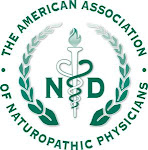Photo by ambages via Flickr, used under the Creative Commons License.
As a naturopathic doctor and a small business owner, I am always looking at ways to build my practice. As a permaculture enthusiast, I also search for ways to incorporate more sustainable practices into my life. An exciting find that does both is Time Banking.As we face these difficult times, Time Banks can help build community, empower people of all ages and skills, and reduce our overall environmental footprint.
Time Banks were created in 1980, during a time of serious funding cuts for social services. With less money available for social programs, civil rights lawyer Edgar Cahn created a system where one hour spent helping someone else earns one Time Credit. People can earn a Time Credit for every hour they spend helping others or building community, and spend one Time Credit for every hour for which they receive help. I help you, you help another, and that person helps someone else down the line.
There are hundreds of Time Banks all over the world, in 33 countries and 36 states. The IRS has ruled that Time Banks are tax exempt, since it is not the same as the barter system, and a Time Credit does not have any attached cash value. Services exchanged are those that help build communities and healthy societies: homework help, housecleaning, oil changes, gardening, driving to appointments, cooking, office assistance, and naturopathic medical care.
The implications for the profession of naturopathic medicine are clear: help build community, increase awareness of how we improve health, treat those who otherwise might not receive care, and receive the services you need in return. People feel empowered because they are converting their own personal time into purchasing power by helping others and sharing their skills and talents. The effects of this system are beyond self-help – they are system change. The reasoning is simple: any efforts to address major social problems with social programs are more effective when they enlist and engage the target population as contributors and co-producers. Time Banking enables people and even organizations to create connectivity, reciprocity, trust, and informal support networks that remain even after the paid intervention is over. Regardless of services offered, whether it be childcare, eldercare, juvenile justice, housecleaning, auto repair, landscaping, family preservation, health care, or community development, programs and service professionals continue to be convinced that when participation from the clients is absent, initiatives fail to realize their true potential. When those who would normally be clients are moved into partners and co-producers, they not only earn the service, but also validation and empowerment as important contributors to society.
Naturopathic medicine has always been community medicine to me. It is more cost effective and empowering. It makes sense that communities will find it to be the most positive and sustainable form of health care available. Any effort to build relationships builds a stronger community and certainly a stronger practice. While I do not mind being absent from the game of insurance, I have often wished that there were a way to treat the people with limited income. Time Banking moves from the difficult systems of sliding scale or barter into one which will not only achieve the goal of opening the health care system, but also keeping the patients involved as partners in their health and in the building of their communities.
Thanks for help with Time Banking information to Anita Smith and http://www.timebanks.org/.





No comments:
Post a Comment